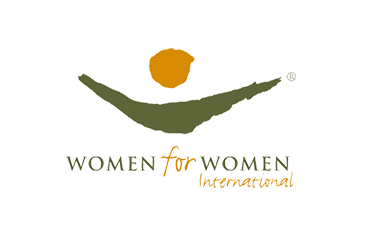by Hillary (Sonny) Hurst
Women.
We are strong.
We are beautiful.
We need each other.
The feminist movement is powerful and has taken the world by storm in recent months, but while we are busy in this noble and necessary pursuit of advocating for women’s rights and equality, let’s all take a second to remember and to understand who we are and what we really need as the movement continues to advance. It is important to look to where we’ve been and where we must continue to go to best understand how to further uplift women in all societies and for the world to see us for the brilliance we are.
While there are many issues that cause disparity between men and women, one of the biggest and most overlooked is that of mental health. Mental health problems affect both men and women, but not in equal measure. For instance, according to mentalhealth.org, “in England, women are more likely than men to have a common mental health problem and are almost twice as likely to be diagnosed with anxiety disorders”. Since the Feminist movement is centred on the advocacy of women’s rights on the ground of the equality of the sexes, it is time we talk about how dire and desperate we all are as women to be united in this championing for not only our own, but also for one another’s mental health.
Although the reasons why women suffer from mental illnesses are wide-ranging, the truth of the matter remains: a woman’s mental health is, still, one of the most disregarded aspects of the feminist movement. One possible explanation for why so many women suffer lies within the amount of women who have been victims of rape, abuse, or other trauma, as those experiences prove to be emotionally troublesome for most. Another explanation to the disparity between men and women could be that men are simply more reluctant to come forward. Therefore, rather than an expectation of inequality when discussing this issue, it becomes an issue of treatment that needs to be sensitive to and reflect gender differences.
Furthermore, there are certain social factors that could cause the statistics for women diagnosed with particular disorders to be higher, including the tendency to more regularly disclose one’s personal thoughts and feelings. Women are more often a part of strong social networks than men; it is one of the most important aspects of their lives. Since men are typically more averse to this sort of disclosure for a variety of both known and unknown reasons, the statistics are less likely to be even. However, it is important to consider the gap is so wide, especially amongst those suffering from anxiety disorders, that were certain social factors absent, the disparity would remain.
Nevertheless, coming forward with a mental illness is an incredibly courageous act, and the fact is, it is likely the persons surrounding you are familiar with the issues. Simply put, if you don’t suffer from depression or some other mental health condition, you know someone who does. These illnesses aren’t far away from us. They aren’t distant statistics with no real-life representation—they’re deep within the eyes of our counterparts, the same women who we laugh with, cry with, and hold dear to us.
The same call to action, that very same intensity we bring forth to other women’s issues is the same intensity that must be brought to address the cries women everywhere erupt. There’s brokenness and pain that lurks beneath the surface. There are unspeakable horrors that women have endured, and it is our responsibility as fellow women to remind them they have a voice and to reinstall within them the belief they are altogether beautiful and worthy of love and acceptance.
Continuing, we talk about women’s rights when it comes to reproduction, but we seem to have neglected one important aspect: the woman after she has the child. Millions of women suffer each year from postpartum depression, yet most of the mediatised feminist movement is largely silent on the issue. We, the women, must recognise the right to choose is as heavy of a decision as the right to choose to get out of bed, to live, in the weeks and months that follow the baby’s birth for some women. Women need support in BOTH facets to settle the gap.
© Ayla Bonomi
If you are a woman who is suffering from mental illness, if you have been the victim of abuse or rape or incest, if you are all too familiar with the darkness and slipperiness of your mind that follows the birth of a child you love so dearly, you must know you are not alone. You must know there is no shame in your suffering and if wrong has been done to you, you are not to blame, no matter what the voices in this world and even the voices in your head might tell you.
Women, the burden rests upon our shoulders to bring awareness to these issues and to speak up when those beside us cannot speak for themselves. Better care is needed to assist women through some of the most difficult parts of their lives, which, at times, are also the most beautiful.
Let’s remember the voices that began the Feminist movement in the beginning. Let’s stay true to the principles we cling tightly to and fight for women in an area we need it most—our minds. What we aren’t saying is silently claiming lives in the background. Women’s mental health is something just as important as any other aspect of our lives, if not the most important.
Calling the strong.
Calling the beautiful.
Let’s stand together and say to the darkness, “this…this one right here…she is my girl and you can’t have her.”
